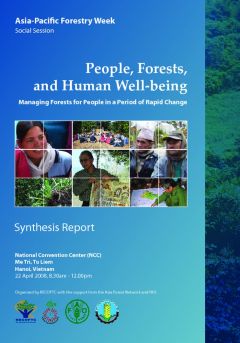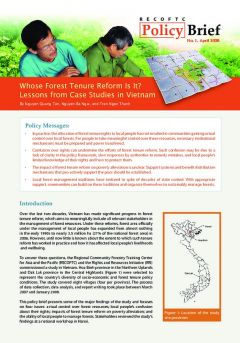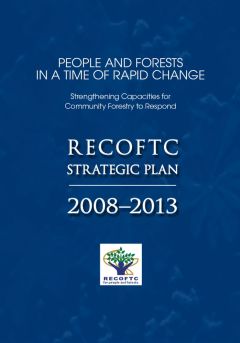Location
RECOFTC
RECOFTC is derived from an abbreviated form of the organization's legal name, Regional Community Forestry Training Center for Asia and the Pacific. Formerly the organization was known as RECOFTC – The Center for People and Forests.
RECOFTC – The Center for People and Forests is an international not-for-profit organization that focuses on capacity building for community forestry in the Asia Pacific region. It advocates for the increased involvement of local communities living in and around forests - some 450 million people in Asia-Pacific - in the equitable and ecologically sustainable management of forest landscapes.
The Regional Community Forestry Training Center for Asia and the Pacific (RECOFTC) opened in Bangkok, Thailand, in March 1987 with support from the United Nations Food and Agriculture Organization, the Government of Switzerland (through the Asian Development Bank), and Thailand's Kasetsart University.
Community forestry is widely acknowledged as a powerful solution for many of the challenges facing local people and the wider society, especially in improving rural livelihoods, enhancing community governance and empowerment, transforming forest-related conflict, protecting and enhancing the environment, and helping to fight climate change. As a capacity-building organisation, RECOFTC improves the ability of people and organisations to conduct community forestry effectively and sustainably.
RECOFTC works toward its mission through four thematic areas:
- expanding community forestry
- people, forests and climate change
- transforming forest conflict
- securing local livelihoods.
Members:
Resources
Displaying 431 - 435 of 485People, Forests, and Human Well-being: Managing Forests for People in a Period of Rapid Change
Under present and foreseeable economic and social trends in the Asia-Pacific region, can we achieve sustainable forest management and better realize the potential of forests and forestry to contribute to improved human well-being?
Whose Forest Tenure Reform is it? Lessons from Case Studies in Vietnam
Over the last two decades, Vietnam has made significant progress in forest tenure reform, which aims to meaningfully include all relevant stakeholders in the management of forest resources. Under these reforms, forest area officially under the management of local people has expanded from almost nothing in the early 1990s to nearly 3.5 million ha (27% of the national forest area) in 2006. However, until now little is known about the extent to which such tenure reform has worked in practice and how it has affected local people’s livelihoods and wellbeing.
Whose Forest Tenure Reform is it? Lessons from Case Studies in Vietnam
Over the last two decades, Vietnam has made significant progress in forest tenure reform, which aims to meaningfully include all relevant stakeholders in the management of forest resources. Under these reforms, forest area officially under the management of local people has expanded from almost nothing in the early 1990s to nearly 3.5 million ha (27% of the national forest area) in 2006. However, until now little is known about the extent to which such tenure reform has worked in practice and how it has affected local people’s livelihoods and wellbeing.
People and Forests in a time of Rapid Change (Strategic Plan 2008-2013)
The Asia-Pacific region is experiencing rapid changes. There is a major need to strengthen capacities to assist countries and forestry stakeholders to respond in ways that benefit both people and forests.
Pro-poor Payment for Environmental Services: Some Considerations
PES is a new concept gaining momentum in the Asia-Pacific region. But what are the enabling conditions for employing PES schemes, and how can they be made pro-poor? Payment for Environmental Services (PES) sets up systems where beneficiaries of environmental services reward the providers of such services with payments or other non-financial goods (market access, land security, public services, infrastructure, capacity building).





